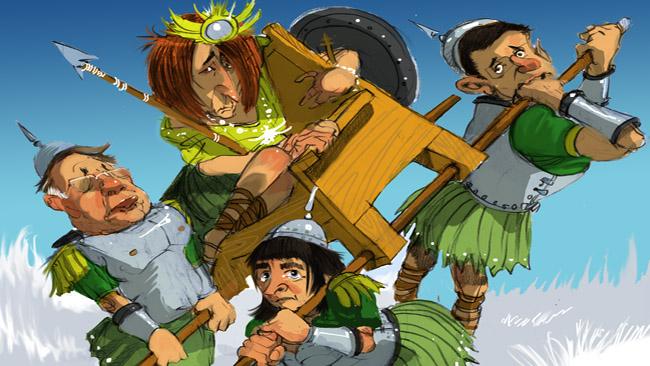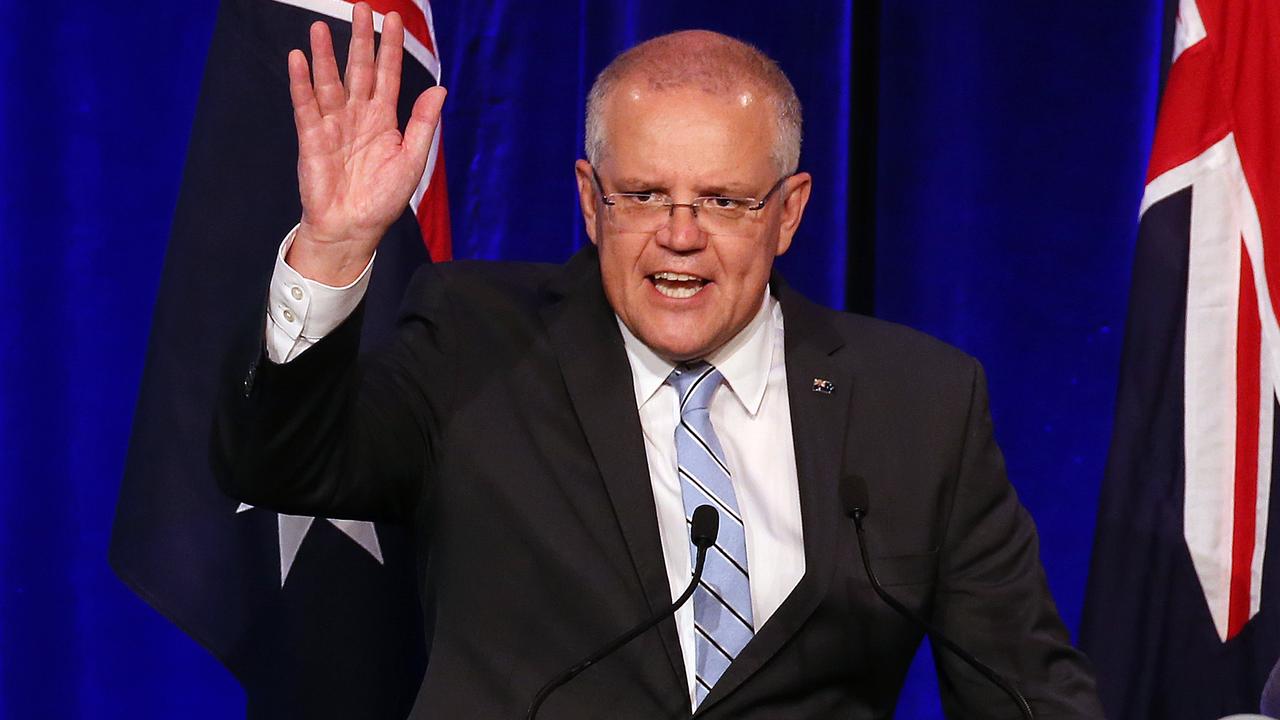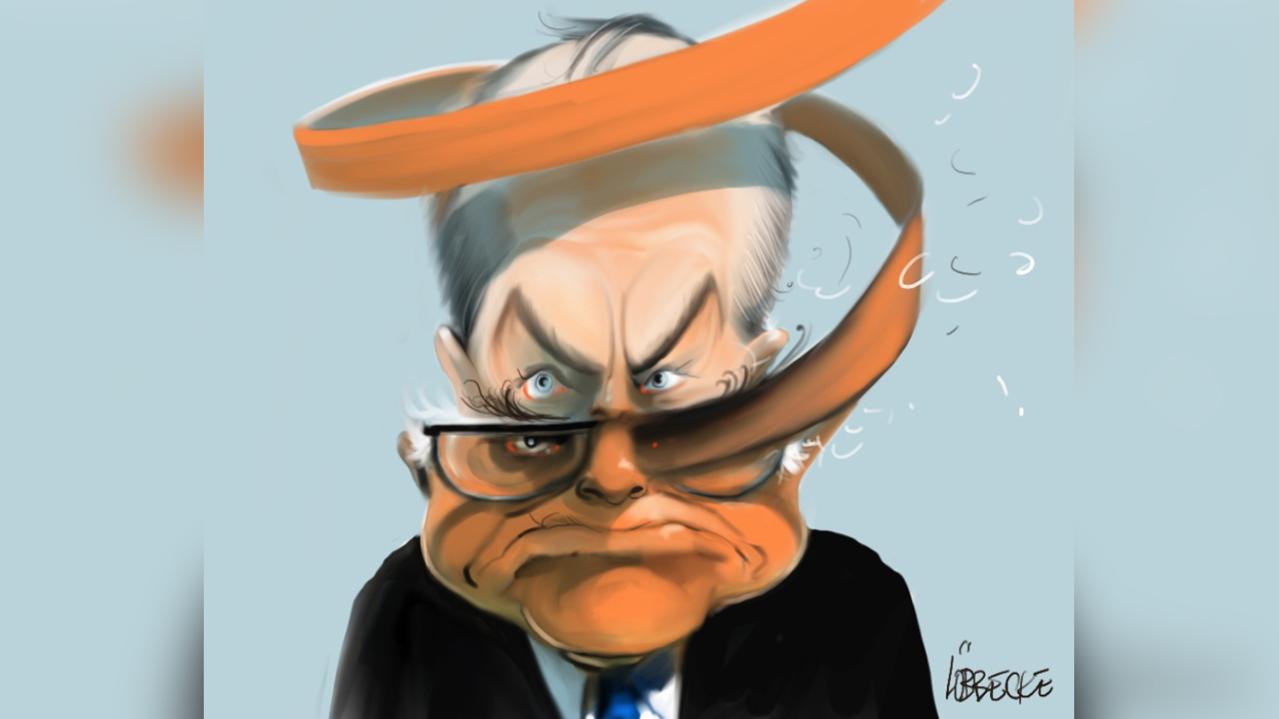Kevin Rudd the unwitting victim of misogyny debate

WHO were the most ardent opponents to Kevin Rudd's returning to the prime ministership in February? Ministers who were prepared to trash the former PM to prevent his reclaiming the top job. Undoubtedly the triumvirate of Wayne Swan, Stephen Conroy and Nicola Roxon headed the list.
They created a scenario in which, had Rudd won the leadership vote eight months ago, none of them could credibly have continued to serve on the frontbench. This was used by Julia Gillard's supporters as some sort of disincentive to revive Rudd: pointing to the damage losing three such senior ministers would do to the government.
I recall that very line being spun to me at the time.
Now stop to consider the job each of these three ministers has done since the leadership showdown, and whether the government would have been worse off without them.
Roxon has brought the attorney-general position into disrepute with her handling of the Peter Slipper-James Ashby showdown. When she wasn't inappropriately trashing the merits of Ashby's case against the commonwealth in media interviews (ahead of the government ultimately settling the matter), Roxon was giving Slipper preferential treatment in his case by allowing Slipper's car into the parking lot at the court, a privilege usually extended only to judges. At least she apologised for that "big mistake".
Conroy - apart from his ongoing bid to create statutory oversight for the media (unappealable no less) - has been overseas boasting to US executives that as Communications Minister in Australia he has "unfettered legal power" when it comes to auctioning off spectrum. "If I say to you, everyone in this room, 'If you want to bid next week in our spectrum auction you better wear red underpants on your head', you'll be wearing them on your head."
That from a minister of the crown no less.
Let's not even open the can of worms about how Conroy (mis)handled the Australia Network tender process: it was slammed by the Auditor-General.
Swan does preside over a strong economy by world standards, there is no doubting that. But how much of Australia's economic success is his doing, as opposed to being a consequence of the natural advantages a country such as ours has in the world?
Putting to one side consecutive record budget deficits and policy backflips in areas such as the structuring of the mining tax, Swan's primary job lately has been to try to manufacture a surplus for next year's budget, at a time of global uncertainty and commodity price shortfalls that have threatened revenue receipts. The surplus is a political goal more so than an economic one, but that is where the Treasurer's energies have been focused lately.
Nevertheless, within the triumvirate, Swan is the standout performer, which says it all, really.
Recall the lengths that Swan, Conroy and Roxon each were prepared to go to quash Rudd's comeback attempt in February?
Swan said at the time that Rudd (a PM he worked for as treasurer for 2 1/2 years) "does not hold any Labor values". Conroy described Rudd as having "contempt for the cabinet, contempt for cabinet members, contempt for the caucus, contempt for the parliament". Yet neither man mentioned these concerns during the time Rudd served as PM, or for the year that he was leader of the opposition. And they applauded his elevation to foreign minister after the 2010 election.
In what may have been an early sign of Roxon's unsuitability to become the nation's chief law officer, she violated cabinet confidence to detail Rudd's failing in the policy area of health during her time as minister. It was all part of a bid by self-interested frontbenchers to convince the backbench, pushing for a Rudd comeback, that he wasn't up to being PM.
Yet when Rudd actually was removed in mid-2010, it took an entirely different triumvirate from outside the ministry to show the courage to put Rudd to the sword.
People might disagree with the actions of David Feeney, Don Farrell and Bill Shorten garnering numbers to oust Rudd, especially in hindsight. But at least they weren't mere rhetorical warriors after the fact.
Swan, Conroy and Roxon were three of the most senior members of Rudd's cabinet, yet none of them had the courage to stand up to him. Instead they sat quietly by as the Rudd government slowly collapsed, choosing to voice their true thoughts only once the Rudd era was over and a comeback was on the cards.
By defending Gillard as strongly as Swan, Conroy and Roxon did in February this year, they have booked themselves certainty in the roles that they occupy, irrespective of performance. Swan has the added security of being deputy leader.
It's hardly likely that the Prime Minister has enough political capital stored up to reconfigure her frontbench, even if she wanted to. But given it's her closest supporters who have underperformed, change is all the more unlikely.
Which means that the only way the three are going to be prised out of their present roles is if Rudd finds a way to mount a comeback: later this year if the polls suddenly retreat, or early next year if Gillard has an error-riddled summer. But the past fortnight has made either scenario near impossible.
Most commentary about the sexism debate has been about who is likelier to be damaged by the way that it was conducted: Gillard or Tony Abbott. This dichotomy misses what may be the most significant ramification of the past two weeks.
By evoking sexism, Gillard has put up yet another barrier to a Rudd comeback. The PM has worked hard to reduce potential policy options Rudd could embrace to justify a leadership change. Removing the carbon floor price when the carbon tax changes to an emissions trading scheme was significant. But if Rudd strikes at Gillard now, he, too, will be branded a sexist. The member for Griffith is an unintended victim of the sexism wars.
Even a straight-out swap of an unpopular PM for a popular one is now difficult to do without crushing what has helped Rudd retain his popularity.
He would be perceived as having betrayed Australia's first female PM, and a gender calculation would be ascribed to that fact, not least because he pledged after the previous challenge not to do so again.
And Gillard has mobilised Labor's parliamentary women behind her, so it is doubtful Rudd could garner the numbers were he even prepared to take that risk. That might not mean much in the Coalition, where only one in five MPs are women, but in the Labor Party, affirmative action has ensured women are a sizeable voting bloc within the caucus, about 40 per cent. They are now firmly in support of the Prime Minister.
It will be Gillard vs Abbott at next year's election. It's unlikely to inspire too many Australians, but in our compulsory voting system, they'll have to turn out anyway.
Peter van Onselen is a professor at the University of Western Australia


